The Best Kitchen Flooring Materials for Durability and Style
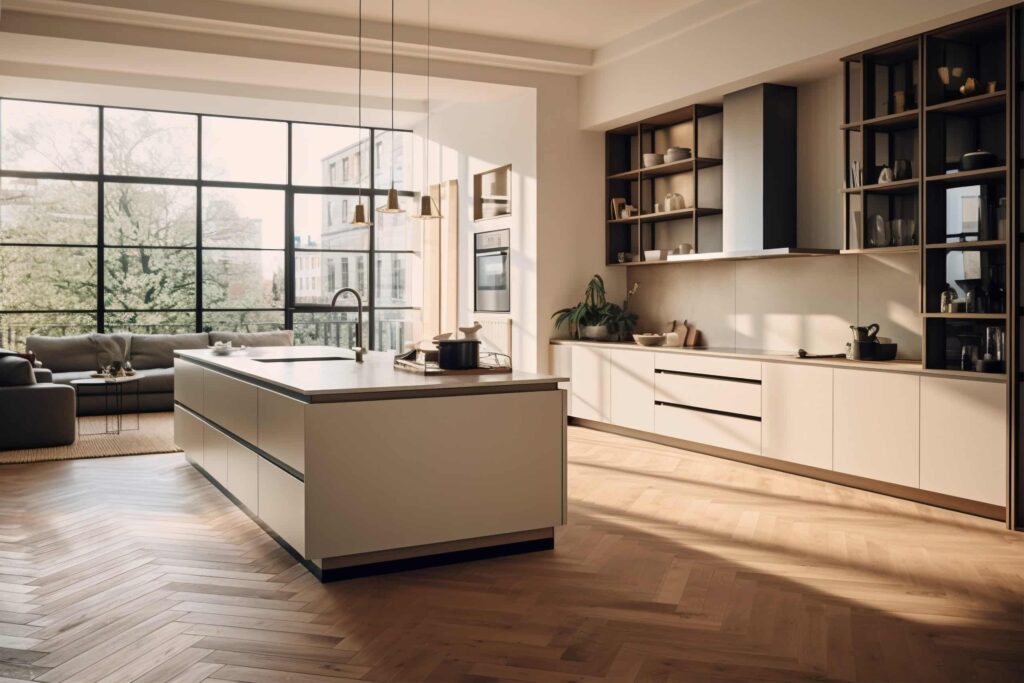
This post was originally published on this site
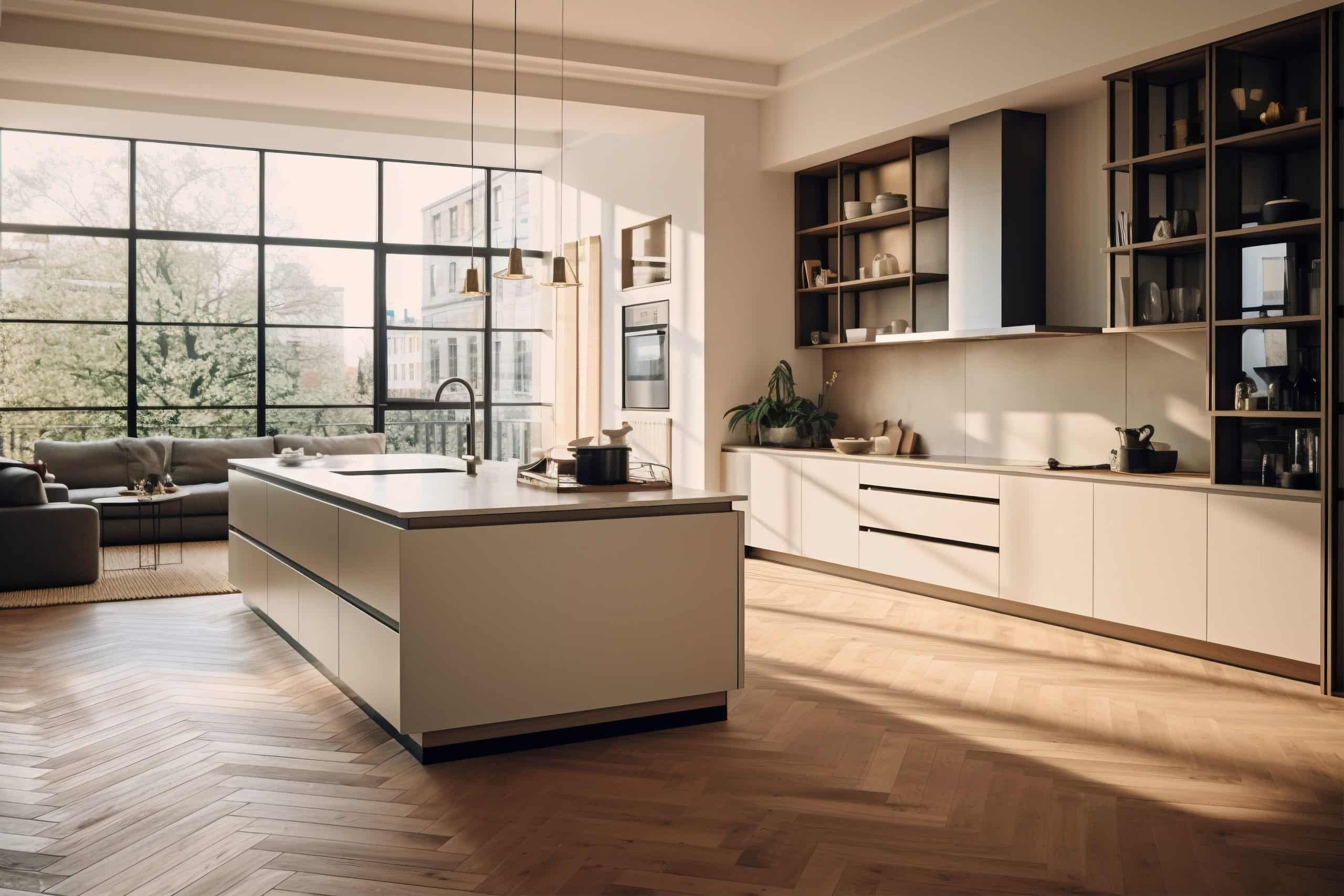
Choosing the right kitchen floor is a balancing act. You need something tough enough to withstand spills and heavy foot traffic yet stylish enough to elevate your space.
But with so many options, how do you choose?
From classic hardwood to modern concrete, we’ve done the legwork to bring you the best kitchen flooring materials that marry durability with style.
Discover the pros and cons of each, and find the flooring that will serve you well for years to come.
Key Notes
- Engineered hardwood offers the best balance of beauty and practicality, with better water resistance than solid hardwood.
- Ceramic and porcelain tiles provide durability and design versatility, ideal for high-traffic kitchens.
- Budget-friendly vinyl has evolved to mimic pricier materials while offering comfort and easy maintenance.
- Eco-conscious options like bamboo and cork provide unique benefits, from superior durability to sound absorption.
1. Engineered Hardwood
We got in touch with Chad at Go Flooring to find out whether engineered hardwood floors would work in your kitchen. According to him, “engineered hardwood gives you all the charm of solid hardwood, but it’s much more practical.”
He explained that the top layer of engineered hardwood, known as the wear layer, is often made of a more durable wood species than what you’d typically find in solid hardwood floors. This means it can withstand the high traffic and occasional spills common to kitchens more effectively while still providing the aesthetic appeal of real wood.
- Pros: It’s more water-resistant than solid hardwood, making it a savvy choice for kitchens. Installation is a breeze and an environmentally friendlier choice since it uses less wood.
- Cons: You can only refinish it a couple of times before the veneer gets too thin. Plus, it’s more prone to denting compared to solid hardwood.
- Best For: Homeowners who want the look of hardwood but need better moisture resistance for their bustling kitchen.
2. Solid Hardwood Flooring
Hardwood flooring is a classic choice that adds warmth and elegance to any kitchen.
- Pros: These floors can be sanded and refinished multiple times, giving them a long lifespan. They also boost home value and come in various species, such as oak, maple, and hickory, each with its own distinct grain patterns and colors.
- Cons: Despite its durability, hardwood is vulnerable to moisture and scratches, which can be challenging in a kitchen. Regular maintenance, including sealing and refinishing, is essential to keep them looking pristine.
- Best For: Kitchens that need a warm, classic look, whether traditional or modern.
3. Ceramic and Porcelain Tile
Ceramic and porcelain tiles are the kitchen’s go-to for durability and style.
- Pros: Waterproof and stain-resistant, these tiles come in an endless array of designs, including ones that mimic natural stone or wood. They’re also a breeze to clean and maintain.
- Cons: Tiles can feel cold and hard underfoot, making long cooking sessions less comfortable. Plus, grout lines need regular sealing to stay stain-free.
- Best For: High-traffic kitchens and anyone looking for versatile design options.
4. Natural Stone
Natural stone tiles, like slate, marble, and granite, add sophistication to any kitchen.
- Pros: These tiles are the epitome of durability, each with its own unique pattern and color. They’re also highly scratch-resistant and can stand up to heavy foot traffic.
- Cons: Stone flooring can be pricey and requires regular sealing to fend off stains and moisture. Some types, like polished marble, can be a bit slippery.
- Best For: High-end kitchens that demand both durability and style.
5. Vinyl Flooring
Vinyl flooring has come a long way, making it a stylish and budget-friendly choice for modern kitchens.
- Pros: Vinyl is wallet-friendly, waterproof, and soft underfoot, making it a pleasure to walk on. Available in sheets, tiles, and planks, it can convincingly mimic pricier materials like hardwood or stone.
- Cons: It may not last as long as natural materials.
- Best For: Budget-conscious homeowners and DIY enthusiasts looking for a practical yet stylish flooring solution.
6. Bamboo Flooring
Bamboo is the eco-friendly darling of the flooring world, and it’s quickly gaining popularity for good reasons.
- Pros: Tougher and more durable than many traditional hardwoods, bamboo stands up well to moisture. And, it’s super sustainable, growing much faster than most trees.
- Cons: Quality can vary, and it’s less water-resistant than some other materials. Bamboo is also prone to scratches and requires a pro for refinishing.
- Best For: Kitchens that need a sustainable and stylish alternative to traditional hardwood.
7. Cork Flooring
Cork flooring is the cozy option that feels as good as it looks.
- Pros: Cork is wonderfully soft and warm underfoot, offering excellent sound absorption. It’s also an environmentally friendly choice, harvested from the bark of cork oak trees without harming them.
- Cons: It can be scratched by heavy furniture and needs regular sealing to protect against moisture.
- Best For: Homeowners looking for a soft, quiet floor.
8. Concrete Flooring
Concrete flooring brings a sleek, modern vibe with unmatched durability to your kitchen.
- Pros: This flooring is incredibly tough and can be customized with dyes and acid stains to suit your style. It’s also low-maintenance and cost-effective, potentially lasting a lifetime
- Cons: Concrete can be hard and cold underfoot, requiring periodic sealing to maintain its appearance. Without proper care, it can develop cracks over time.
- Best For: Industrial-style kitchens and those seeking a minimalist, contemporary look.
Frequently Asked Questions
Which kitchen flooring is the most durable?
Engineered hardwood and tiles are among the most durable options. They can withhold heavy foot traffic and resist stains and water damage.
What is the easiest kitchen flooring to maintain?
Vinyl flooring is easy to maintain due to its waterproof nature and simple cleaning requirements. It’s also comfortable underfoot, making it a practical choice for busy kitchens.
What is the best kitchen flooring for a budget?
Vinyl flooring is budget-friendly and offers a wide range of styles that mimic more expensive materials, making it an excellent choice for budget-conscious homeowners.
Conclusion
Selecting the ideal kitchen flooring is a delicate dance between style, durability, and ease of upkeep.
Hardwood and engineered hardwood bring timeless charm, while ceramic and porcelain tiles offer toughness and versatility in design. For a touch of luxury, natural stone tiles are the way to go. Vinyl and bamboo are fantastic budget-conscious and environmentally-friendly options. Cork provides cozy comfort, and concrete delivers a sleek, modern edge.
Think about what your kitchen truly needs and how you live your life in it and you’ll find the perfect floor that not only stands the test of time but also wows with style.
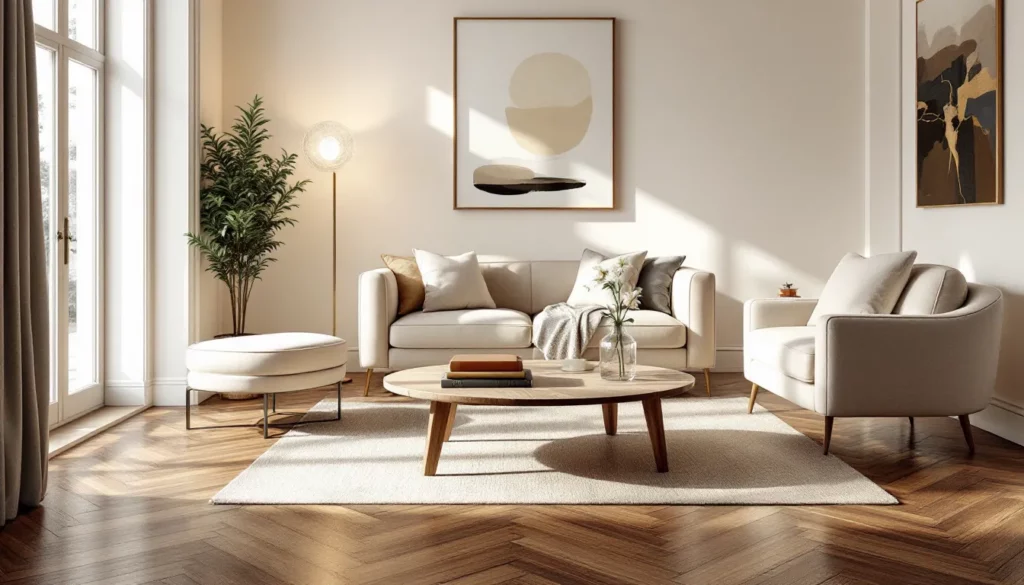
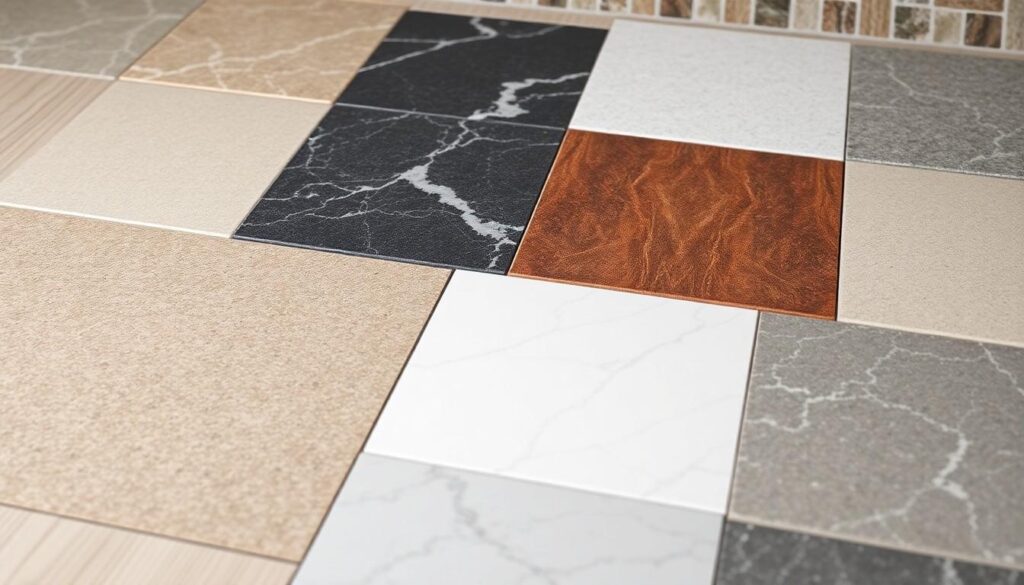
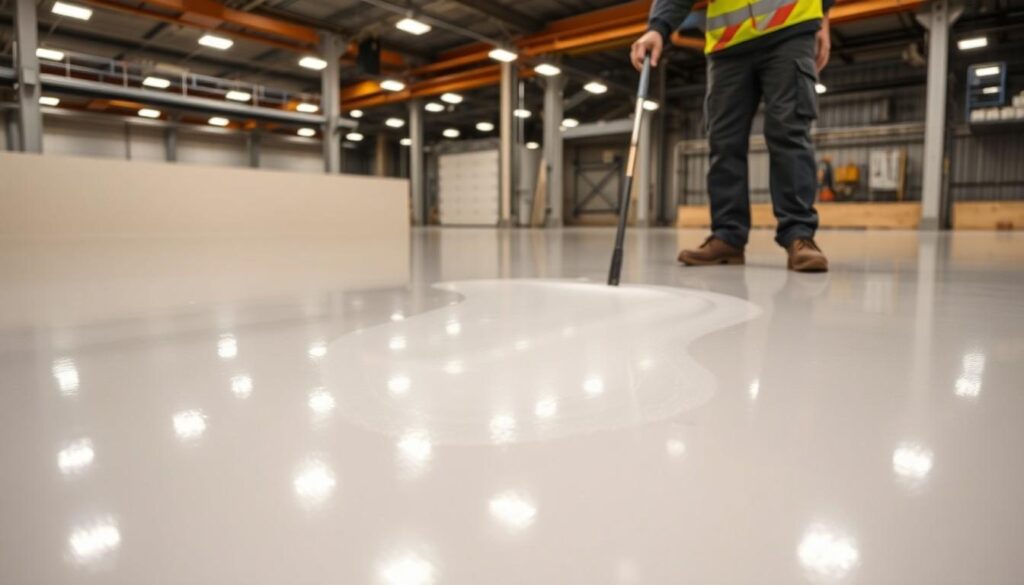

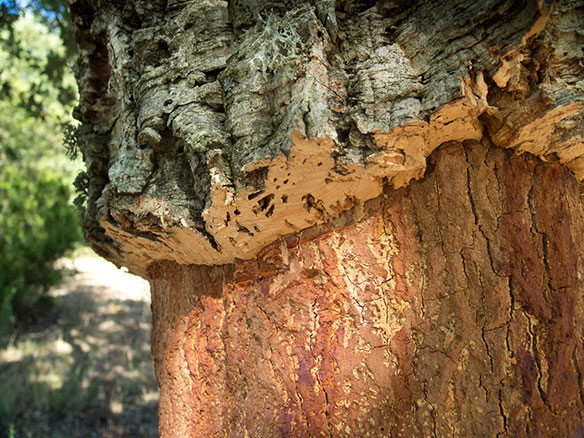
Responses